Digital Payments
Digital technology is transforming the way we respond to emergencies. Innovations range from how we identifying people eligible for assistance, to data collection for assessments and monitoring, to communication with crisis-affected communities. Digital payment systems, including mobile devices, electronic vouchers, and cards – when used appropriately – can deliver timelier, more secure, more cost effective, and inclusive assistance. But as the volume of data we collect, store and share about people grows, we must ensure that our data protection systems keep pace and that we understand and mitigate for the risks inherent in new technologies.
Featured Content
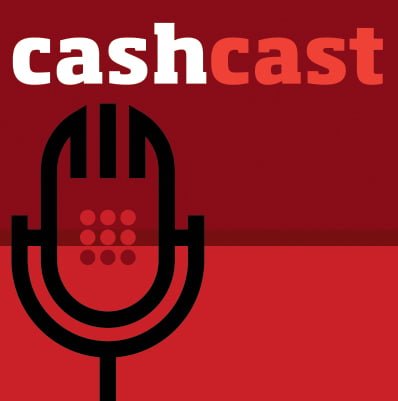
Podcast: Is informed consent possible in humanitarian CVA?
Podcast
Episode 2 of the CashCast tackles data responsibility with Amos Doornbos, Linda Raftree, James Eaton Lee and Ric Tighe

Consent and Ownership in the Shift to Digital Cash and Voucher Assistance
Blog Post
Part of committing to cash and voucher assistance (CVA) is committing to going digital and collecting data. While they are two different things, they are deeply intertwined. And while an organisation can ‘go digital’ without cash programmes, it’s nearly impossible to commit to cash programmes in the long term without going digital. Yes, it is true we’ve done cash and voucher programmes...
Latest

Digital CVA reading group – Discussion of Brookings Institution Global fund paper
Event
This is an informal and private space for us to discuss two related papers:
- The call for a Global Fund for scaling digital cash transfers by Rory Stewart and Cina Lawson [Link - https://www.brookings.edu/wp-content/uploads/2023/12/2023-Room-1-Concept-Note.pdf]
- The paper referenced in this: Updating...
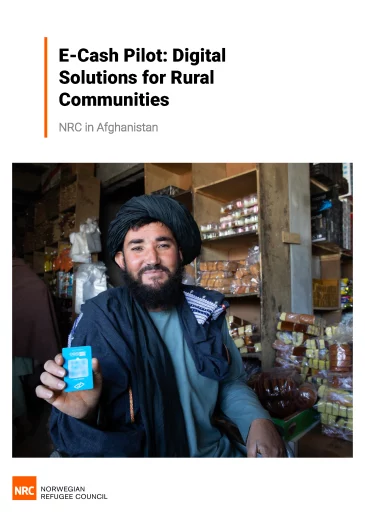
E-Cash Pilot: Digital Solutions for Rural Communities
Report
An innovative digital cash project piloted by the Norwegian Refugee Council (NRC) in the Maiwand district of Kandahar province has successfully demonstrated a new and more secure way of providing humanitarian assistance while significantly enhancing the inclusion and resilience of rural...
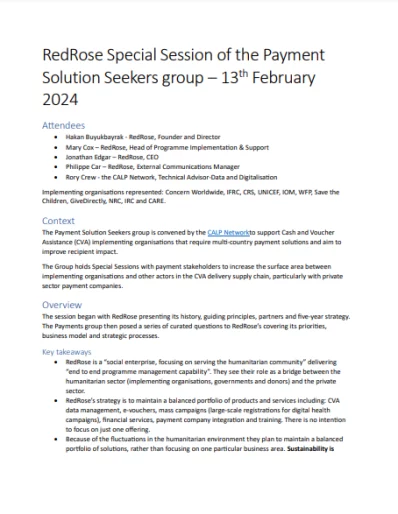
RedRose presentation to Payments group – Notes, 13th February 2024
Meeting minutes
These meeting notes give details to the Special Session held with RedRose on 13th February 2024, hosted by the Payments group.
The session began with RedRose presenting on its history, guiding principles, partners and five-year strategy. The group then posed a series of curated questions to understand...
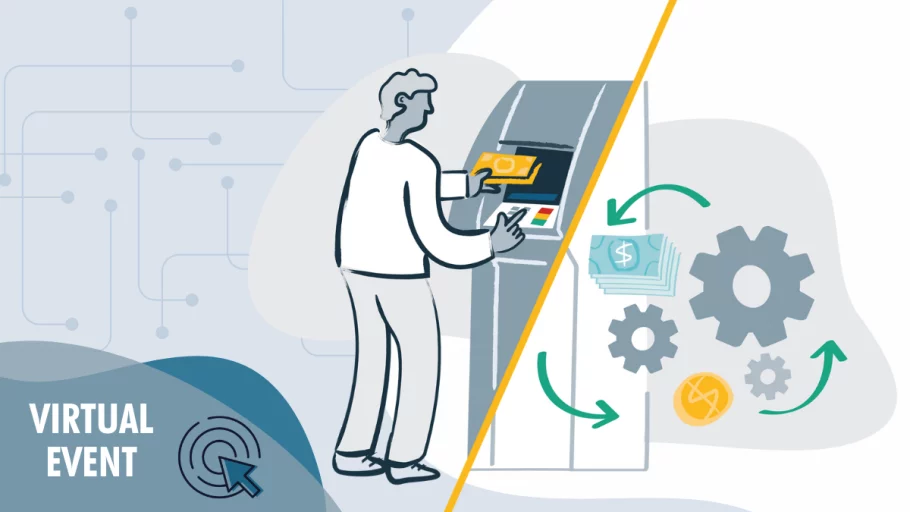
Payment solutions for CVA implementers
Event
Cash Voucher Assistance (CVA) implementers are turning to the latest financial technology (FinTech) to boost efficiency, maximize impact, and offer recipients a choice of delivery options.
This event marks the launch of CALP's latest research in this area, specifically examining how payment...
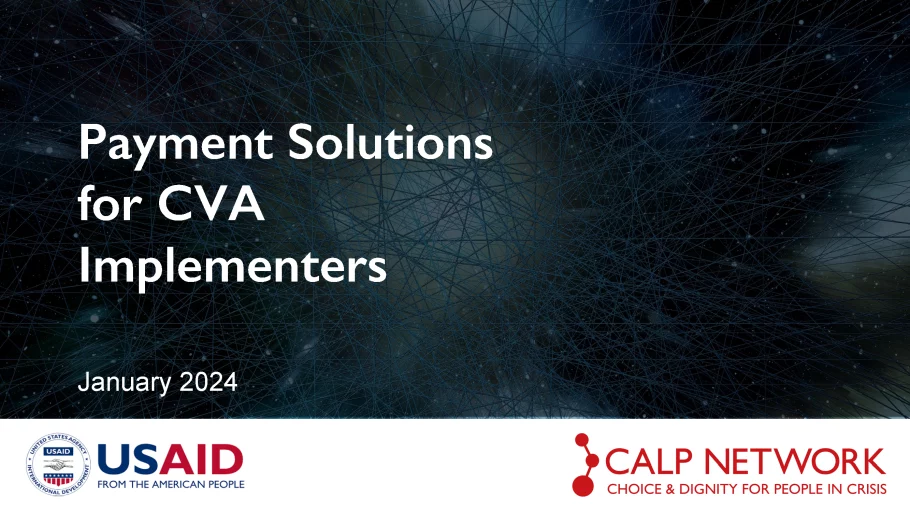
Payment Solutions for CVA Implementers
Report
This report explores how CVA implementers can leverage developments in payment technology to empower recipients, offering them a choice of CVA delivery mechanisms.

Payment Solution Seekers Webinar
Webinar recording
This webinar marked the launch of the Payment solutions for CVA implementers report; which helps implementing organizations, payment companies and regulators leverage FinTech innovations to increase the impact of Cash and Voucher Assistance (CVA).
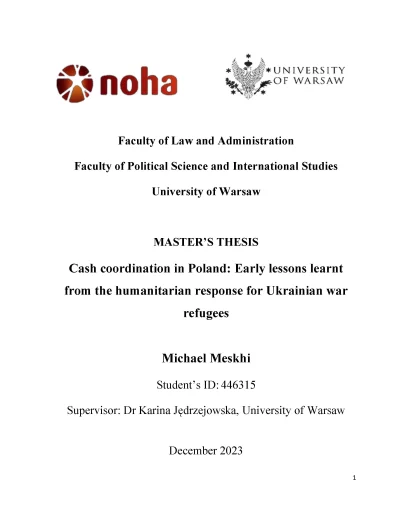
Cash Coordination in Poland: Early lessons learnt from the humanitarian response for Ukrainian war refugees
Case Study
This thesis was submitted for obtaining the Master’s Degree in International Humanitarian Action. By submitting the thesis, the author certifies that the text is from his hand, does not include the work of someone else unless clearly indicated, and that the thesis has been produced in accordance with...

Joint Market Assessment Round 2
Report
This report assesses the feasibility of implementing Cash and Voucher Assistance (CVA), specifically Multipurpose Cash Assistance (MPCA), to support individuals impacted by the February 6 earthquakes. The evaluation focuses on the acceptance of various forms of cash modalities, availability of key items,...

Cash and Voucher Assistance at Scale: Addressing food insecurity by supporting families in the Netherlands
Case Study
With an increasing number of families experiencing financial trouble in the Netherlands, in September 2022, the Dutch parliament voted to allocate €100 million for free school meals in vulnerable neighbourhoods across the country. After the proposal was approved, the Dutch Ministry of Education, Culture...

Piloting Mobile Money Cash Assistance in Sudan
Case Study
In the 7 months since the onset of conflict in Sudan in April 2023, an estimated 6.1 million people have been displaced, making Sudan the country with the highest number of displaced individuals globally. Humanitarian organizations are considering cash assistance as a response to the crisis, employing...

WVI Cash Roadmap 2.0 – New Avenues – Leveraging, multiplying “Nexus” cash to take children and their families further than imagined
Policy paper
WVI's strategic global Cash Roadmap 2.0 (2024-2027) speaks to the organisations' commitment that amidst polycrises and resourcing constraints, there is urgency to maximise and multiply World Vision's capabilities, assets and cash voucher programming (CVP=CVA) is a powerful tool to do so.
Increasing...

Working with Financial Service Providers to Provide Emergency Cash Assistance
Guidelines and Tools
This report, prepared and published as part of VenEsperanza’s research and learning agenda, presents lessons learned and best practices related to the collaboration between humanitarian actors and financial service providers (FSPs) in delivering multi-purpose cash assistance in emergency contexts. Using...

Ukraine Regional Response – Save the Children CVA Infographic
Report
This infographic gathers key programmatic data from Save the Children CVA operations in the Ukraine response, between February 2022 and September 2023. It highlights key programmatic design aspects (including transfer values and targeting approaches) and also illustrates the impact of CVA on multiple...

What’s Next for Cash: Mercy Corps’ approach to cash and voucher assistance
Presentation
The brief outlines Mercy Corps' CVA approach & standards applied across our CVA portfolio and sets the direction for CVA in Mercy Corps moving forward.
The approach outlines how CVA contributes to Mercy Corps Pathway to Possibility strategy by focusing on areas that drive impact & sector leadership,...

Myan Ku Final Evaluation Report
Report
The Nexus Response Mechanism (NRM), in partnership with sequa gGmbH and Wave Money, and with funding from the European Union, set up the Myan Ku Workers Support Fund in April 2020. The project was created in response to garment factory closures in Myanmar caused by the COVID-19 pandemic. In 2021, the...

Overcoming power imbalances: Community recommendations for breaking the cycle
Report
Ground Truth Solutions has been tracking people’s perceptions in Somalia since 2017. Following a recent quantitative survey with cash and voucher recipients, as part of our Cash Barometer project, we carried out focus group discussions to discuss our findings with community members and gather their...

WFP Cash Policy: Harnessing the power of money to help people survive and thrive
Policy paper
WFP’s new cash policy centres on people’s experiences, their stories and hopes for the future. By sending people cash, we can effectively and efficiently support them to meet their food, nutrition, and other essential needs, while at the same time bringing unique benefits that can help people break...
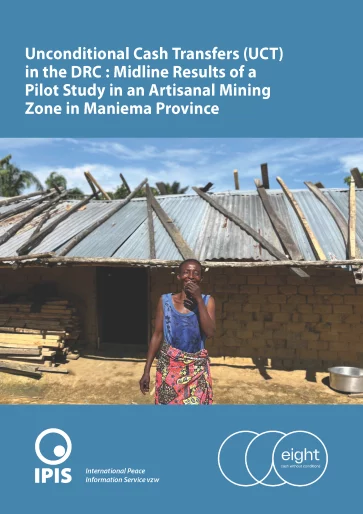
Unconditional Cash Transfers (UCT) in the DRC: Midline results of a pilot study in an artisanal mining zone in Maniema province
Case Study
In October 2021, the Belgian non-profit organization Eight World, started a pilot project of Unconditional Cash Transfers (UCT) in a village in an artisanal mining zone in the territory of Pangi, in Maniema Province, the Democratic Republic of Congo (DRC). Eight World transfers cash directly to...

Guidelines on policies and controls for the effective management of money laundering and terrorist financing (ML/TF) risks when providing access to financial services
Guidelines and Tools
Guidance for financial institutions on how to manage money laundering and terrorist financing risks (ML/TF) whilst not excluding vulnerable populations.

Musical Money Messages – Mobile Innovation from Mercy Corps
Blog Post
We don’t usually put music, quizzes and voice messages in the same category as effective humanitarian cash and voucher assistance (CVA). So, our interest was piqued when Mercy Corps won USAID’s ‘2022 Digital Development Award’ for a human-centered program which used songs, games, and quizzes sent...


